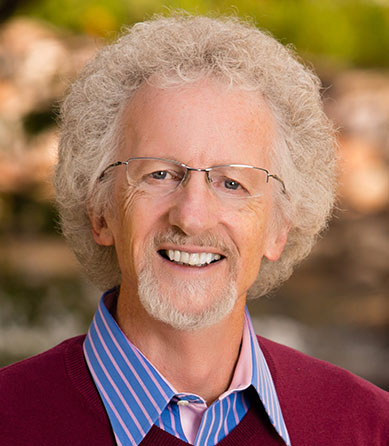Who’s The Audience?
I used to view the worship service in church as a time for entertainment. Speaking of folks like me, Sören Kierkegaard said that we tend to think of church as a kind of theater: We sit in the audience, attentively watching the actors onstage. If sufficiently entertained, we show our gratitude with applause. Church, though, should be the opposite of the theater. God is the audience for our worship.
Contract Faith
Sometimes people who serve God live with an unstated “contract faith.” Because they give time and energy to work for God, they think they deserve special treatment in return.
Parallel Universes
Every so often I catch myself wondering about the whole grand scheme of faith. I stand in an airport, for example, watching important-looking people in business suits, briefcases clutched to their sides, as they pause at an espresso bar before scurrying off to another concourse. Do any of them ever think about God? I wonder.
Advanced School
We tend to compartmentalize our lives. We fill our days with activities such as work, errands, chores, caring for children. And then we try to carve out time for “spiritual” activities such as church, small groups, personal devotions.
Declaration Of Dependence
Adults celebrate when children learn to do something on their own: get dressed, brush their teeth, tie shoelaces, ride a bike, walk to school.
Why Suffer?
Jesus taught that the world seen from God’s viewpoint is tilted in favor of the oppressed. This teaching emerges in the Sermon on the Mount and other statements of Jesus: the first will be last (Matt. 19:30; Mark 10:31; Luke 13:30), and he who humbles himself will be exalted (Luke 14:11; 18:14). But why would God single out the oppressed for special attention?
Becoming Inclined To God
I have learned much about the conscious remembrance of God from Brother Lawrence, a cook in a 17th-century monastery. In his book The Practice of the Presence of God, Brother Lawrence mentioned practical ways to “offer God your heart from time to time in the course of the day,” even in the midst of chores such as cooking or repairing shoes. One’s depth of spirituality, said Lawrence, does not depend on changing things you do but rather changing your motive—doing for God what you ordinarily do for yourself.
The Rescue Business
Living in Colorado, I climb mountains. On summer weekends, I see casual hikers who have no idea what they are doing. In sandals, shorts, and T-shirts, carrying a single container of water, they start up a trail at mid-morning. They have no map, no compass, and no rain gear.
God Incidents
In the normal course of providence, God works in and through creation, not despite it. For this reason, some answers to prayer are difficult to prove with certainty.

